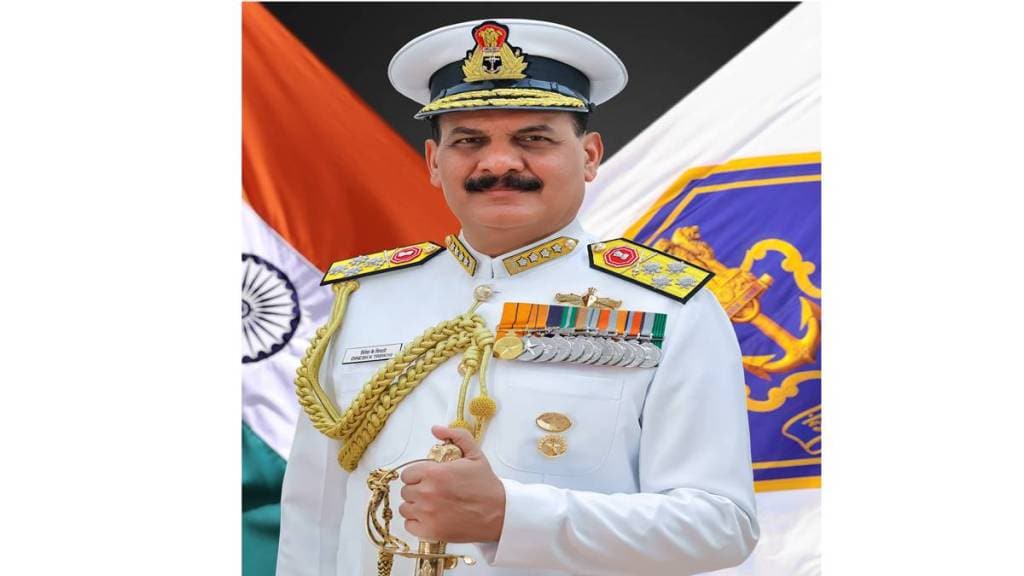As the Indo-Pacific continues to command global attention, the maritime partnership between India and Indonesia is emerging as a cornerstone of regional security and cooperation. Against shifting geopolitical dynamics and the growing importance of maritime trade routes, Chief of the Naval Staff (CNS) of the Indian Navy Admiral Dinesh K Tripathi, has embarked on a four-day visit to Indonesia. This high-level engagement, scheduled from December 15 to 18, 2024, highlights the deepening naval collaboration between two of Asia’s largest economies and maritime powers.
Timing of the visit
The timing of Admiral Tripathi’s visit is significant. India and Indonesia, poised to become the world’s third and fourth-largest economies, respectively, are recalibrating their defence and strategic priorities. The visit continues the momentum built since the signing of the Shared Vision for Maritime Cooperation in the Indo-Pacific in 2018, which laid the groundwork for enhanced naval interoperability and a shared commitment to securing vital sea lanes.
A Robust Agenda for Maritime Cooperation
During his visit, Admiral Tripathi is expected to hold extensive discussions with key Indonesian leaders, including Defence Minister Lt Gen Sjafrie Sjamsoeddin (retd), Commander of the Indonesian Armed Forces General Agus Subiyanto, and Admiral Muhammad Ali, Chief of Staff of the Indonesian Navy. The agenda spans critical areas such as joint maritime exercises, coordinated patrols, and disaster response mechanisms.
One key initiative is the 43rd edition of the India-Indonesia Coordinated Patrol (CORPAT), currently underway along the International Maritime Boundary Line. CORPAT exemplifies the operational collaboration between the two navies, which has evolved to include maritime surveillance, interdiction of illicit activities, and seamless communication. The bilateral naval exercise Samudra Shakti has further bolstered interoperability, with recent iterations incorporating complex weapon firings and joint manoeuvres in contested waters.
Addressing Common Challenges
Maritime security challenges in the region, from piracy to drug trafficking and natural disasters, require collective action. Both navies have shaped regional Standard Operating Procedures for Humanitarian Assistance and Disaster Relief (HADR) under the Indian Ocean Naval Symposium (IONS). Regular cross-training of personnel at various levels has enhanced mutual understanding, allowing both sides to share best practices and respond more effectively to emerging threats.
Admiral Tripathi’s visit also signals the potential for deeper collaboration in defence manufacturing. India’s burgeoning defence industrial base, bolstered by the Atmanirbhar Bharat initiative, presents opportunities for joint development of naval systems. Indonesia has expressed interest in acquiring advanced Indian technologies, such as the BrahMos missile system, which could mark a turning point in defence trade relations.
Strategic Implications
As two of the largest resident naval powers in the Indo-Pacific, India and Indonesia are uniquely positioned to influence the region’s security architecture. Their proximity to critical sea lanes—nearly 40% of global trade flows—places an onus on both countries to ensure safe and open waters. Enhanced naval cooperation between these two nations strengthens regional stability and reinforces their collective ability to address global maritime challenges.
Admiral Tripathi’s visit is not merely symbolic; it is a reaffirmation of India’s and Indonesia’s commitment to a free, open, and inclusive Indo-Pacific. With both nations sharing aspirations for strategic autonomy and sustainable development, their partnership is poised to grow exponentially.
In many ways, this visit marks a new chapter in India-Indonesia maritime relations. It reflects a shared vision for cooperation that extends beyond defence, encapsulating broader economic and strategic objectives. As the global order continues to evolve, the relationship between these two nations could become a defining feature of 21st-century maritime security.

